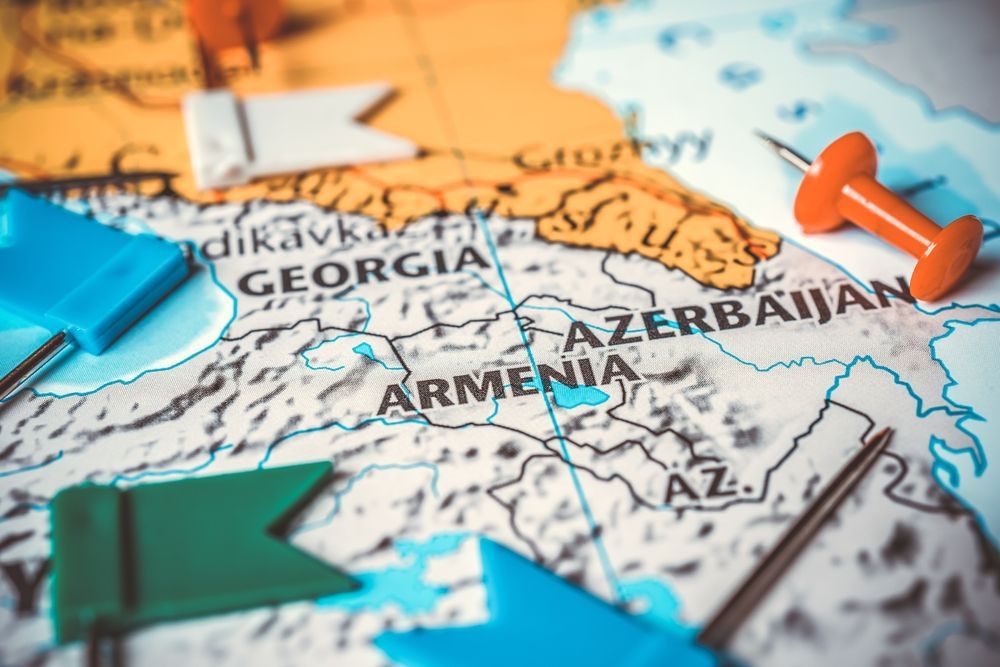The European Union has once again made groundless accusations against Azerbaijan. Peter Stano, Spokesperson for foreign affairs and security policy of the European Union (EU) voiced unrealistic views about the human rights situation in Azerbaijan.
This behavior of the EU, which is indifferent to the fate of hundreds of thousands of Azerbaijanis, whose rights have been violated by being subjected to ethnic cleansing by Armenia and deprived of their property and cultural heritage, is discriminatory and provocative. Undoubtedly, such statements seriously damage the reputation of the European Union as well as its approach to human rights.
Currently, the issue of signing a peace agreement between Azerbaijan and Armenia is on the agenda in the South Caucasus. Peter Stano's statements are aimed at disrupting the positive dynamics observed in the direction of sustainable peace in the region.
Tarnishing both economic and political relations with Azerbaijan undoubtedly harms the credibility of the European Union. It should not be forgotten that this statement is another unsuccessful attempt to interfere in the internal affairs of Azerbaijan.
The fact that the West comes up with statements in this form is directly related to its lack of influence in the South Caucasus. The peaceful steps of the Pashinyan government reduce Yerevan's dependence on other countries. It seems that the Armenian authorities have begun to understand the contributions that the peace treaty can make in the political and economic spheres.
Some Western forces, on the other hand, are worried about losing leverage to poke into regional processes and are trying to regain these opportunities by various means, including making baseless claims.
It should be noted that the European Union mission stationed and expanded in Armenia is the main example of this intervention.
It should be remembered that Azerbaijan has sufficient experience, knowledge, and wisdom in the field of human rights, so it does not need mandatory advice and instructions.
In this regard, it is more appropriate for the West to focus on its problems. In recent years, human rights in Europe, especially the argument of Islamophobia, has become a driving force that serves to gain influence in society for many political circles. Some racist parties in Europe are trying to influence the masses through Islamophobia.
The European Union covers up such problems and works on Azerbaijan's internal issues. It exposes the biased policies and insidious plans of the West.
Currently, peace negotiations between Azerbaijan and Armenia are ongoing. Despite all the efforts of the West and the United States, Azerbaijan regained the sovereignty of its lands. After the local anti-terror measures in 2023, the separatist forces in Garabagh were neutralised successfully.
After the meeting of the foreign ministers of Azerbaijan and Armenia in Almaty on May 10, it was confirmed that the signing of the peace treaty between the two countries is in the near future.
This is proof that the West cannot implement its plans in the South Caucasus with the help of Armenia.
Along the same line, the conditioning of Azerbaijan’s presidency of COP29 with inappropriate political motivation contradicts the very essence of the idea of cooperation in addressing climate change that Azerbaijan has undertaken.
Recall that Baku, the capital of Azerbaijan, will host the 2024 UN Climate Change Conference (UNFCCC COP 29) for the first time in the region from November 11–22, 2024. The decision was made at the plenary session of COP28 on December 11. Azerbaijan successfully participated in the COP28 held in Abu Dhabi last year.
Azerbaijan will take the opportunity to bring heads of state and governments, civil society organisations, business, and international institutions together in the South Caucasus to discuss climate change, measures to accelerate the implementation of the Paris Agreement, and focus on long-term climate strategies and goals.
It is worth noting that Azerbaijan confirmed its commitment to reduce the emission of greenhouse gases by 35 percent by 2030 and increase this target by 40 percent by 2050. Fulfilling the commitments under the Paris Agreement adopted in 2015 and actively working in this regard are priority issues for the government of Azerbaijan.
The Conference of the Parties to the UN Framework Convention on Climate Change (UNFCCC) has been held annually since 1995. The event aims to assess the progress made in combating climate change around the world.
---
Follow us on Twitter @AzerNewsAz

